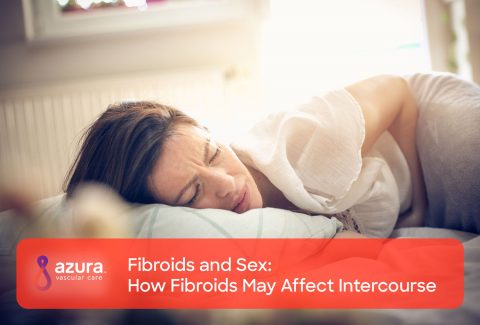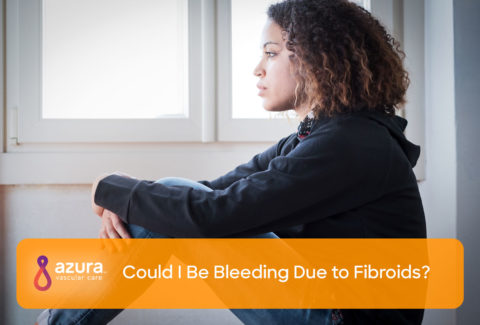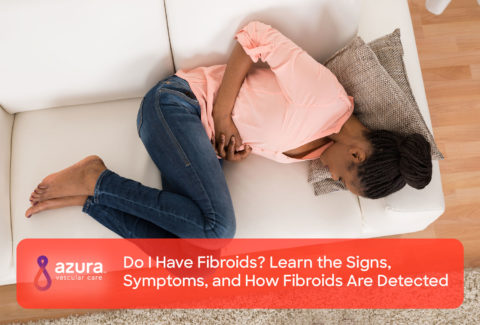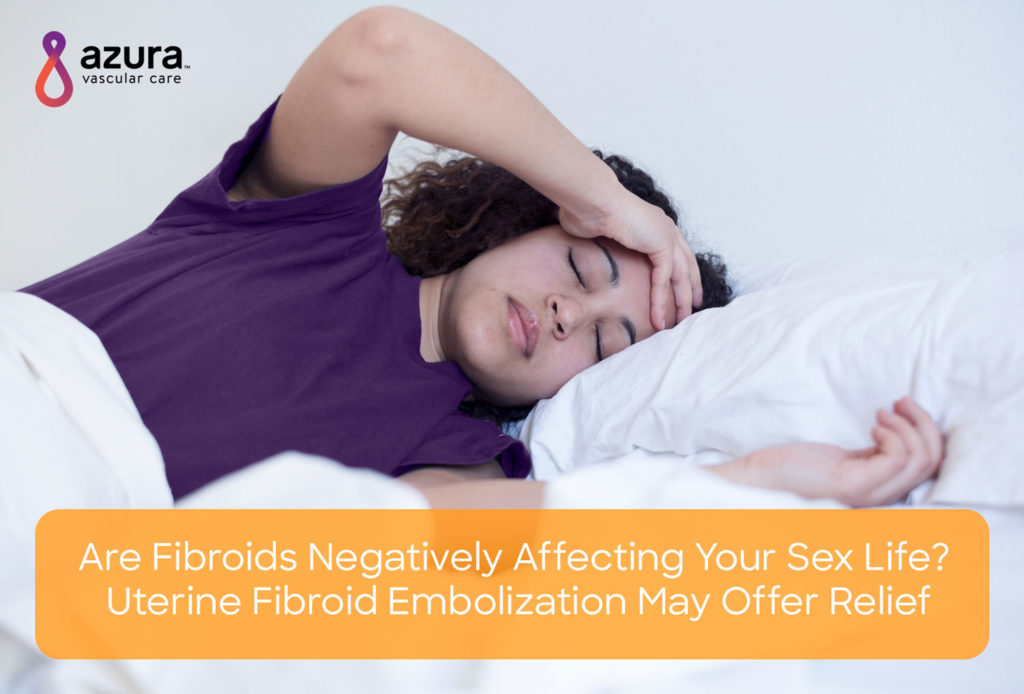
Heavy menstrual bleeding, bloating and painful cramping are no fun. They can interrupt everything from going to work, to getting your laundry done, to working out, to having sex with your partner.
Feeling Less Sexy?
The symptoms caused by fibroids can make any woman feel less sexy. After all, who wants to have sex with a heavy menstrual flow and intense abdominal cramping?
According to a national survey, 22 percent of the participants – both African American and Caucasian women – said their fibroids negatively affected their feeling of femininity, ultimately interfering with their intimate relationships. This was a common complaint from both groups of women. i
The survey also revealed that young African-American women, ages 29 to 39, are more likely to experience heavy or prolonged menstrual bleeding than women of other races. These women are also more likely to report relationship issues due to their fibroids. i
You Don’t Need to Suffer from Uterine Fibroids
If any of this sounds like what you’re experiencing, it’s important to remember you have options. You don’t have to continue to suffer because of your uterine fibroids. And, you may be surprised to hear: you don’t necessarily need to have surgery either!
Have you ever heard of the minimally invasive procedure known as uterine fibroid embolization (UFE)? This uterine-sparing procedure is a treatment option for women whose fibroids are causing significant symptoms and for those women hoping to avoid surgery.
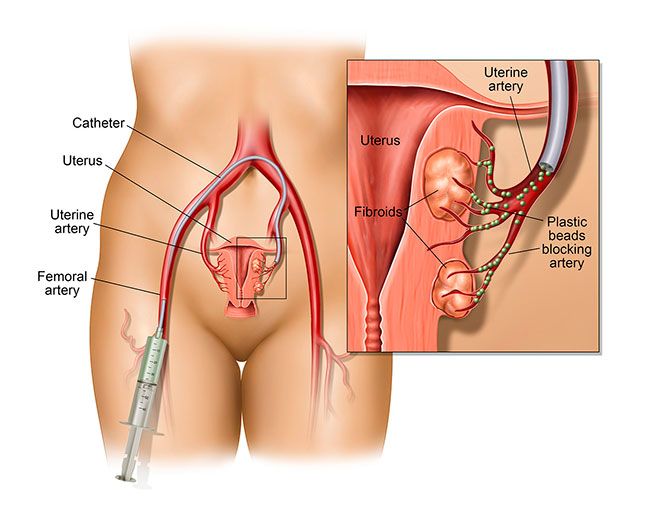
UFE is an outpatient alternative to surgery that essentially kills fibroids by starving them of the blood supply and nutrients they need to live. Following UFE, most women are able to return home within just hours, resuming their normal activities within a matter of weeks. ii
Can Uterine Fibroid Embolization Help Me?
UFE is an option if you suffer from heavy flow, bloating and cramps as a result of your uterine fibroids. After having UFE you may experience:
- Improvement in symptoms
- Decreased bleeding – up to 90 percent of women have decreased bleeding within 3 months after having UFE
- Improvement in pain – 80 percent of women report less pain one year after the procedure
- Diminished bleeding – 90 percent of women report decreased bleeding 2-years post-procedure iii
In addition, chances are your fibroids won’t come back after UFE, as recurrence is rare.
Is UFE Right for Me?
Many women suffering from fibroids may be good candidates for UFE. With the exception of very large fibroids, this minimally invasive procedure can typically be performed on patients with fibroids of all sizes.
However, there are some contraindications, including pregnancy. If your doctor thinks that a uterine lesion could be something other than a fibroid, he or she may want to perform surgery just to be sure.
And if you have chronic kidney disease, an active pelvic infection or an active urinary tract infection, you are likely not a good candidate for the UFE procedure.
What if I Want to Have Children?
This is a tough question to answer. While fibroids don’t always create issues for women wanting to become pregnant, they have been associated with a higher rate of miscarriage. iv
Unlike a hysterectomy, UFE leaves your uterus intact. Still, the effects of UFE on fertility and pregnancy are inconclusive. v If you’re of child-bearing age and want to have children in the future, you should talk to your doctor before having any type of treatment for your fibroids.
Sources:
i Stewart, E. A., Nicholson, W. K., Bradley, L., and Borah, B. J. (2013, October). The Burden of Uterine Fibroids for African-American Women: Results of a National Survey. Journal of Women’s Health. 22(10): 807–816.
ii Khan, A.T., Shehmar, M., and Gupta, J.K. (2014) Uterine fibroids: current perspectives. International Journal of Women’s Health 6: 95¬–114.
iii Spies, J.B. (2013). Current evidence in uterine embolization for fibroids. Seminars in Interventional Radiology 30(4): 340–346.
iv Saravelos SH, Yan J, Rehmani H, Li TC. (2011). The prevalence and impact of fibroids and their treatment on the outcome of pregnancy in women with recurrent miscarriage. Hum Reprod. 2011; Sep 27 [Epub].
v Torre, A., Paillusson, B., Fain, V., Labauge, P., Pelage, J.P., and Fauconnier, A. (2014). Uterine artery embolization for severe symptomatic fibroids: Effects on fertility and symptoms. Human Reproduction, 29(3): 490–¬501.
